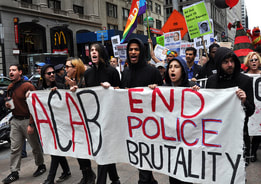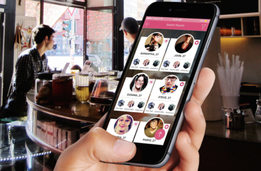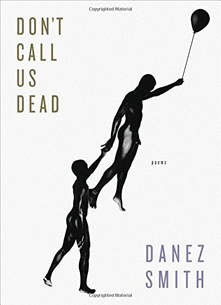One aspect that makes poetry such a powerful form is how it is often used to tackle pertinent and even controversial topics. Race and sexuality are two timely issues, and Danez Smith tackles both of them in his book of poetry Don’t Call Us Dead. As a gay, black man in America, Smith has a unique perspective that shapes much of what he writes. In some ways, his poems speak to a very particular demographic and yet, they ring true for larger audiences.  Police brutality against black people, particularly black men, is an extremely hot button issue in America right now. Smith tackles this in his poem “Dear White America.” As the title suggests, the poem is written as a letter: “i’m sick of you calling your recklessness the law… each night, i count my brothers. & in the morning, when some do not survive to be counted, i count the holes they leave.” Here, Smith puts a voice to the reality of many black men in America. While he doesn’t directly state that he’s talking about police brutality, he implies it and leaves the reader with the weight of loss many communities experience. He calls the black men who have died his “brothers,” drawing a familial connection to the victims and allowing the reader to empathize with his experience. In this same poem, Smith also speaks about the experiences of black women in America when he says, “you put an asterisk on my sister’s gorgeous face! call her pretty (for a black girl)!” Again, he uses this poem to address a profound issue in this country that leaves black people feeling like second class citizens at best. He makes the issue personal by talking about his sister; this again calls the reader to empathize with Smith’s point. Race is the subject of Smith’s poem “Dinosaurs in the Hood” as well, as he tackles another timely issue: the representation of black boys in the media. Throughout the poem, he talks about making a movie “where a little black boy is playing / with a toy dinosaur on the bus” (lines 3-4). The clear theme of this piece is representation of minorities as people. While he emphasizes the little black boy, he also says, “i don’t want any racist shit / about Asian people or overused Latino stereotypes” (lines 13-14). He goes on to describe what he wants this movie to look like, and in the fifth stanza he says, “But this can’t be / a black movie. this can’t be a black movie. this movie can’t be dismissed / because of its cast or its audience. this movie can’t be metaphor / for black people & extinction” (lines 24-27). Like with “Dear White America,” he uses this poem to draw attention to an important issue that is prevalent in our country: the reduction of black people to stereotypes and metaphors in popular culture. Smith’s humanization of the little black boy on the bus again allows the reader to empathize with Smith and other black people who don’t see quality representations of themselves in the media.  In the poem “a note on the phone app that tells me how far i am from other men’s mouths,” Smith talks about the intersection of race and sexuality as he details his experience with a dating app. Throughout the poem, he goes through the different profiles he sees and how impersonal the whole experience is. The connection to race comes in when he notes that there are men who “mark their doors in blood” (line 3) with disclaimers like “No Fats. No Fems. No Blacks. Sorry, Just A Preference :)” (line 4). This is a clear reference to the biblical story of Passover where Israelites put blood on their doors in Egypt so the Angel of Death would pass over their houses. In this analogy, “fats, fems, and blacks” would be the plague that killed the Egyptians; this is likely a reference to how the speaker feels when he sees profiles like that. The very next poem in the anthology is titled, “& even the black guy’s profile reads sorry, no black guys.” The fact that this discrimination is so casually stated on dating apps is a wake up call to the reader that racism is still extremely prevalent in today’s society. Even in his dating life, the speaker, presumably Smith, can’t escape it. Overall, Don’t Call Us Dead is a book that invites the reader to experience what it is like to be a black, gay man in America. It allows the audience to either step into a new role or understand they are not alone. While this is a book of poetry, it is also a call to action for people with inherent privilege to wake up to the discrimination minorities face and use their power to do something about it.
0 Comments
Leave a Reply. |
Archives
July 2024
Categories
All
|
|
Glassworks is a publication of Rowan University's Master of Arts in Writing 260 Victoria Street • Glassboro, New Jersey 08028 [email protected] |
All Content on this Site (c) 2024 Glassworks
|


 RSS Feed
RSS Feed
